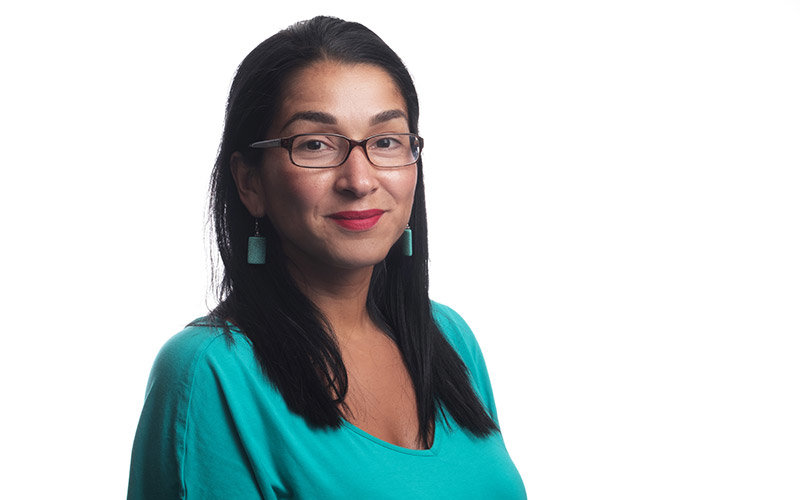
Former Los Angeles schoolteacher Carolina Valdez joined Cal State Fullerton this fall semester to help prepare elementary educators for social justice teaching.
With her research interests focusing on teacher organizing, Valdez has organized several grassroots organizations in LA, and in 2012, helped establish the People’s Education Movement for educators of color. The organization’s work was documented in her co-authored 2016 article “Solidarity with the People: Organizing to Disrupt Teacher Alienation,” published in Equity and Excellence in Education. She also serves as communications co-chair of the American Educational Research Association’s Critical Educators for Social Justice Special Interest Group.
Valdez, assistant professor of elementary and bilingual education, earned her doctorate in urban schooling at UCLA and master’s degree in teaching from USC, where she also completed the multiple subject teaching credential program. She holds a bachelor’s degree in child and family development from San Diego State University. Before coming to CSUF, she taught in the Department of Teacher Education at Cal State Monterey Bay.
What inspired you to go into this field?
Education has always been my passion. My mother was a teacher, so I knew I wanted to do the same by the time I was in middle school. I am thrilled to prepare the next generation of educators to create just, equitable and inclusive classrooms.
What do you hope students learn from your teaching?
My goals are to provide my students with the educational theory necessary to inform their teaching practice and to support them in connecting theory-to-practical applications in the classroom. To avoid teacher turnover and burnout, I want to prepare my students to not only survive within the profession, but also to thrive within the profession.
What are your research interests?
My research interests include critical ethnic studies pedagogy — an interdisciplinary field focusing on colonial and racial projects that attempt to govern the relationship between people and land — and grassroots teacher organizing.
What would you like others to know about your area of study?
With research studies noting the positive effects of ethnic studies on student engagement and ‘agency’ — students’ exerting power to transform conditions — as well as positive effects on attendance rates, graduations rates and standardized test scores, it’s critical that we examine pragmatic ethnic studies approaches across K-8 settings.